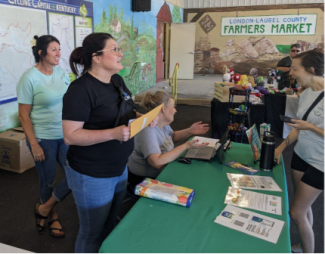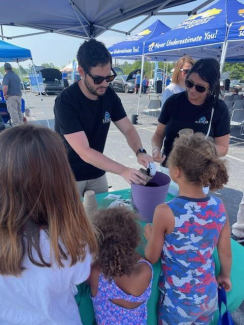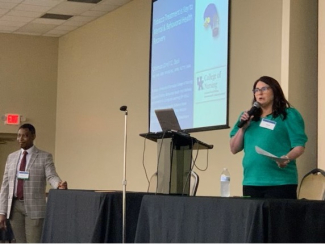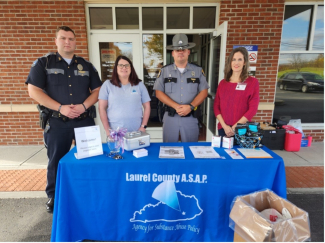LCHD is committed to improving the community's ability to access mental and behavioral health support and improving overall well-being in Laurel County. One of LCHD’s important initiatives is the Laurel County Health in Motion Coalition. The coalition was established in 2011 through a partnership between the Laurel County Health Department and Saint Joseph London. The purpose of the coalition is to engage community members in community health assessments to identify health problems and prioritize strategies to impact and improve health, develop and implement programs, and evaluate progress toward health improvement. The coalition utilizes the Mobilizing Action Through Planning and Partnership’s (MAPP) model to complete a Community Health Assessment (CHA) and subsequent Community Health Improvement Plan (CHIP) process every 3 - 5 years. To date, the coalition has administered 4 cycles of the CHA/CHIP process. The most recent assessment was conducted in 2023 and the following areas were prioritized for its implementation plan:
- Alcohol, Tobacco, and Drug Use
- Mental Health & Mental Disorders
- Weight Status, Physical Activity, & Nutrition
BH WELL serves on the Alcohol, Tobacco & Drug Use subgroup of the Coalition and offers technical assistance and expertise to the group. The Laurel County Agency for Substance Abuse Policy (ASAP) board coordinator, Christie Shrader, provides leadership for the subgroup and actively works alongside the health department on many SUD and tobacco initiatives. Laurel County ASAP’s goal is to reduce the prevalence of alcohol, tobacco, and other drugs among youth and adults in Kentucky and to coordinate efforts among state and local agencies in the area of substance abuse prevention.
LCHD has worked diligently over the last several years to build relationships with local behavioral health organizations. The goal has been to share tobacco treatment resources and encourage the implementation of tobacco free policies. Tyler Caldwell, a Public Health Program Supervisor at LCHD, describes the journey to reach these organizations, “with BH WELL’s help, we put together evidence-based packets of information that supported the impact of nicotine cessation on substance abuse. Although the progress was slow in the beginning, when they were informed about the positive effects of tobacco cessation from Dr. Okoli and the BH WELL team, it really helped shift perspectives.”
The LCHD team emphasizes how important partnerships are to ensure that their efforts are relevant and effective in their community. LCHD takes pride in partnering with multiple local organizations. Lynnett Renner, a Registered Dietitian at LCHD, believes, “these partnerships help build local residents’ trust in the health department because we provide evidence-based resources to help our community.” LCDH’s dedication to continue fostering trust with their community is evident. “Strong partnerships really encourage innovation. And, one of the most important aspects of a strong partnership is accessibility,” Caldwell shared. LCHD has done an excellent job of ensuring that the department is accessible to the local community, which is evidenced by the strength of local partnerships and community engagement.




